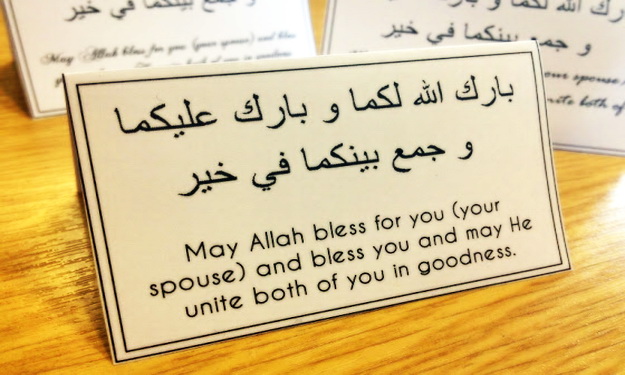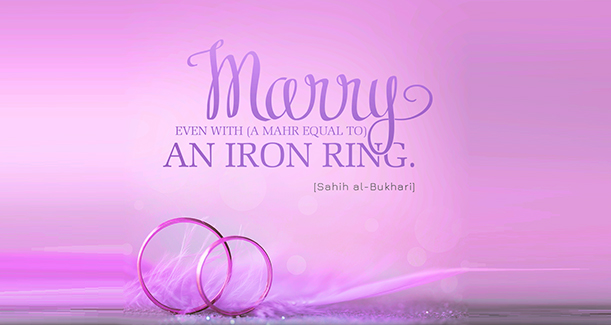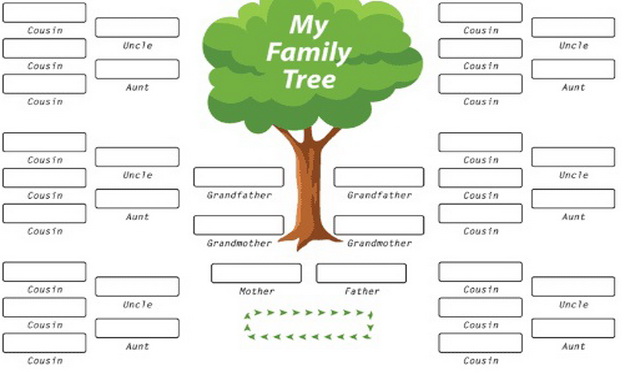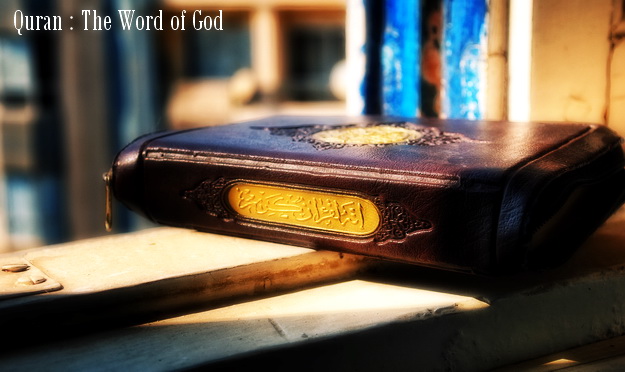Title: Kitaabun-Nikaah (The Book of Marriage) from Shaikh Saalih al-Fawzaan’s explanation of Buloogh al-Maraam min Adillatil-Ahkaam of Al-Haafidh Ahmad Ibn ‘Alee Ibn Hajr al-Asqalaanee (Born 773H, Died 852H).
Shaikh Al-Fawzaan’s tremendous explanation is entitled Tas-heel al-Ilmaam bi-fiqhil-Ahaadeeth min Bulooghil-Maraam and is printed in seven volumes. The following is a translation of this important and very enlightening chapter, adapted in places for brevity and simplicity.
The following are from the Volume 4.
“Announce the marriages!” – Buloogh al-Maraam (no. 981)
Al-Haafidh Ibn Hajr (rahimahullaah) said:
979: Narrated ‘Aamir Ibn ‘Abdillaah ibn Zubair from his father (radhiAllaahu anhum) that Allaah’s Messenger (Sallallahu alayhi wassallam) said:
“Announce the marriages.”
[Reported by Ahmad and declared Saheeh by al-Haakim. Ahmad no. 16130, Al-Haakim 2/183, and the hadeeth is “Hasan li-ghairihi” (Good due to other chains of narration).]
Shaikh Saalih al-Fawzaan (hafidhahullaah) said:
Explanation:
‘Aamir Ibn ‘Abdillaah Ibn Az-Zubair Ibn Al-‘Awwaam. As for ‘Aamir, then he is a Taabi’ee, his father is ‘Abdullaah Ibn Az-Zubair (a Companion), and his grandfather is Az-Zubair Ibn Al-‘Awwaam (a Companion) – may Allaah be pleased with them both, they were both Companions.
The Prophet ((Sallallahu alayhi wassallam) said:
“Announce this marriage and strike the drum for it.”
[Reported by at-Tirmidhee 1089, Ibn Maajah 1895, from ‘Aa’ishah (radhiAllaahu anha)]
This hadeeth proves the obligation of announcing the marriages, and they should not be a secret. So they are announced to distinguish them from fornication. And the announcing is done by various means:
The beating of the “duff” (drum) by the women so that is becomes a type of announcing because whoever hears it, comes to know that a marriage has taken place. It is not accompanied with music and other musical instruments. All of this is forbidden. As for specifically playing the drum, then it is allowed on the occasions of marriage for the purpose of announcing the marriage (nikaah).
Also from the conditions of marriage (nikaah) is the witnessing of it, and this will be discussed, and it is a condition from the conditions of marriage (that is necessary for its validity).
From the types of announcing is to carry out a “walimah” (a meal for invited guests), either upon the contract of the marriage, or upon the consummation of the marriage due to the saying of the Prophet (Sallallahu alayhi wassallam) to ‘Abdur-Rahmaan Ibn ‘Awf on the occasion of his marriage:
“Perform a waleemah even if it is with one sheep.”
[Bukhaaree, no. 2048, 3937. Muslim 1428]
So by way of these means the marriage is announced, so if the marriage is not announced through one of these means, the nikaah is not sound, rather it is void.
There Is No Marriage Without A Guardian, And The Conditions of a Valid Nikaah – Buloogh al-Maraam (no. 982)
Al-Haafidh Ibn Hajr (rahimahullaah) said:
From Abu Burdah Ibn Abee Moosaa from his father (radhiAllaahu anhuma) who said that Allaah’s Messenger (Sallallahu alayhi wassallam) said:
“There is no marriage except with a guardian.”
[Ahmad, 19518. Abu Dawood, 2085. Ibn Maajah, 1881. At-Tirmidhee, 1101. Ibn Hibbaan, 4077. It is not reported by an-Nasaa’ee. It is reported in Mursal form (with a Companion missing in the chain of narration) from ‘Abdur-Razzaaq, 10475. At-Tirmidhee in “Al-‘Ilal”, 1/428. At-Tahaawee, 3/9.]
Also it is reported by Imaam Ahmad from Hasan, from ‘Imraan Ibn Husayn ascribed to Allaah Messenger (Sallallahu alayhi wassallam) that he said:
“There is no marriage except with a guardian and two witnesses.”
[We did not find it with Ahmad, however it is reported by At-Tabaraanee in “Al-Kabeer” 19/299. Ad-Daaruqutnee, 1101. Al-Bayhaqee, 7/125. In the chain is ‘Abdullaah Ibn Muharar, and he is Matrook (abandoned) in hadeeth. Also reported from Ibn ‘Abbaas with Ash-Shaaf’ee in his “Musnad”, 2/12. At-Tabaraanee, 11343. Al-Bayhaqee, 7/112, 124. Also from ‘Aa’ishah with Ibn Hibbaan, 4075. Al-Bayhaqee, 2/125. With these two latter witnesses, the hadeeth is considered “Hasan li-ghairihi” (Good due to other chains of narration).]
In the above hadeeth with its narrations contains two conditions for the correctness of a marriage. We have already mentioned in the previous hadeeth (no. 981), the first condition which is to announce.
The Second Condition: The presence of a “waliyy” meaning a guardian. So a marriage is not sound and correct except with a guardian who contracts the marriage for the woman. If she was to marry herself off by herself, then the marriage would be null and void just as the hadeeth proves due to the absence of the guardian. The guardian is the closest male blood relative on her father’s side. As for her blood relatives through her mother, such as the maternal uncle, or her grandfather on her mother’s side, or her brother through her mother but not through her father, or the son of her maternal aunt, then all of these are male relatives from her mother’s side – and from this side they are not considered as her guardians. Rather her guardians are males from the father’s side beginning with the closest (i.e. her father) then the next in closeness. And if she does not have a guardian, then her guardian is the Muslim ruler, as will be discussed later – and this is due to the fact that the ruler is the guardian of the one who has no guardian.
So therefore, the guardian (waliyy) is a necessity. And were she to marry herself off (without a guardian), then the marriage would be null and void according to the overwhelming majority of the scholars, with the exception being the Hanafees [in their madh’hab]. They hold that a woman can marry herself off, even without a guardian. They make an analogy (Qiyaas) with the selling of goods, so they say: “Just as you can sell what you yourself possess, then likewise she can give herself away in marriage.” However this opinion is false and futile because it seeks to make an analogy (Qiyaas) in the presence of an established textual evidence, and there can be no analogy once there is a textual proof.
So a marriage wherein a woman gives herself away is not valid, even if there are those from the people of knowledge who say it is valid. The attention is given to the proofs – so the presence of a guardian is necessary, and it is a condition for the correctness and soundness of a marriage. (See Bidaayatul-Mujtahid, 1/675)
The Third Condition: The presence of two witnesses upon the contract of marriage (‘aqdun-Nikaah). And they must be trustworthy.
The Pillars of the Nikaah: Establishing the proposition of marriage and accepting that, and that both parties, the bride and groom are free from having any impediment that prevents the marriage from going ahead and concluding.
The Conditions are Four:
- The guardian.
- Two witnesses.
- The willingness of both the bride and the groom, each one being pleased with the other.
- That both parties are named, the groom is named and the bride is named. It is not sufficient that the guardian merely states: “I have hereby married my daughter to you.” Rather he must name her specifically because it is possible that he has a few daughters, so it is not known which one he has married off. Likewise it is not said, “I have married her to your son,” because he may have a few sons, so it is not known which one. So it is necessary to name each of them.
As for spreading news of the marriage, then it is obligatory, or even a condition according to some of the Scholars – however it is necessary to do so. And that is the intent behind announcing the marriages.
End
 navedz.com a muslim's Quest for the truth
navedz.com a muslim's Quest for the truth









